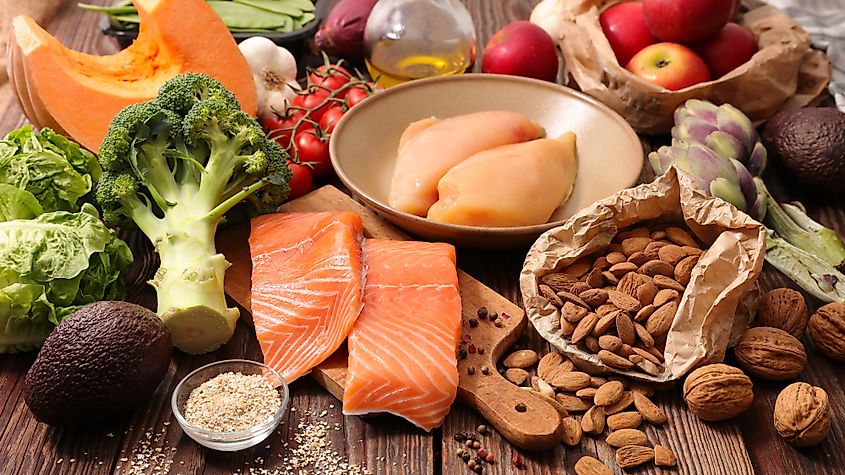What Percentage Of Americans Are Vegetarians?

- The human body needs nine amino acids to function properly.
- Meat is a complete protein.
- Being a vegetarian could easily increase the fibre in your diet.
Americans consume a lot of meat. According to BBC.com, people living in the US eat somwhere between 220-275 lbs, (100-125 kg), of meat each year, per person, adding up to barrels full of chicken wings, burgers, roasts, sausages, bacon and other meaty options.
Some, however, choose to avoid meat altogether, either due to their dietary preference, religious beliefs or some other reasons. These are the vegans and vegetarians. By definition, a vegetarian is someone who does not eat meat or fish, ever. Unlike vegans who avoid animals and all animal products such as eggs, dairy and cheese, vegetarians may consume animal products such as yogurt and scrambled eggs, but they do not eat the flesh of animals.
Exactly how many Americans are following a vegetarian diet? According to a 2018 Gallup poll, about 5% of US adults consider themselves to be vegetarians. If you add in the children who are vegetarian in the country, you could be looking at somewhere between 5% and 10% of all people in the US being vegetarian.
Drawbacks And Benefits

Like most diets, being a vegetarian can have its drawbacks and its benefits. According to Livestrong.com, one of the main drawbacks of vegetarianism is that your body takes in fewer complete proteins. A complete protein is formed when all nine essential amino acids you need are present in a food source. Unfortunately, plants rarely contain all nine, meaning that, as a vegetarian, you need to be careful that you are getting all the amino acids you need, and that you are eating a wide variety of food throughout the day.
Meat and other animal products are complete proteins already, and so it takes less planning to be a meat-eater.
Vegetarians can also be at a greater risk of being nutrient deficient. According to the Mayo Clinic, unlike many meat-eaters, vegetarians need to be careful they are getting enough vitamin B12, iron, zinc, iodine, omega 3-fatty acids and protein.
It is possible to follow a vegetarian diet and to stay healthy, doing it, however. A vegetarian diet could give you a higher intake of fiber and antioxidants which has been linked with lower rates of coronary heart disease and better cancer protection.
Environmental Effects

There are other benefits to being a vegetarian. Some say being a vegetarian can also be good for the planet. In the view of the Food and Agricultural Organization of the United Nations (FAO), agriculture contributes massively to global warming, as well as to air pollution, land degradation, deforestation, energy use and decline in biodiversity. The FAO estimates that the livestock sector contributes about 18% of global greenhouse gas emissions, and so being a vegetarian can help to lower this percentage.
Not everyone agrees, however. According to Bustle.com, a study done at Johns Hopkins University in Baltimore found that being a flexitarian is better for the environment than being a straight vegetarian. A flexitarian is someone who eats a diet that is mainly vegetarian, but who consumes meat and animal products from time to time, among other things.
This approach is thought to be better for the planet. This is because a full vegetarian diet tends to raise a person’s intake of eggs and dairy. More dairy and eggs was found to actually cause more greenhouse gas emissions than eating meat once a day for protein and following an exclusively plant-based diet for your other two daily meals.
There are said to be over 375 million vegetarians worldwide. If you join them in shunning meat, one thing is for certain: you will not be alone in your dietary preferences.











